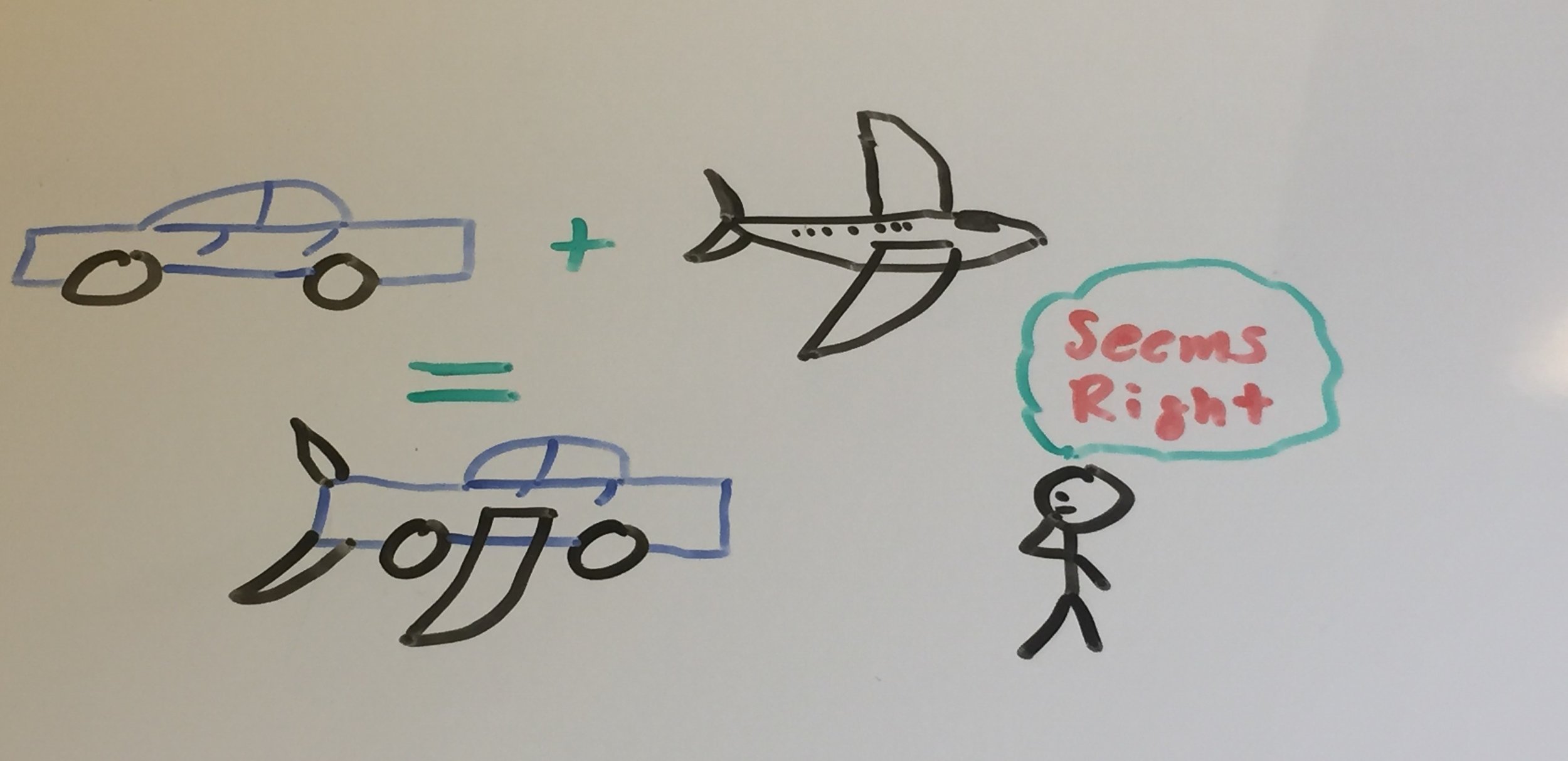Episode 15: Silly Log Jams
If you are reading this on my website then you may have noticed I also do a bit of woodworking, since that’s primarily what my site is about. I put the critical thinking blog here because, well, I already pay for the site so why not. Woodworking is a hobby that I’ve wanted to turn into something more and I’ve worked steadily to try and make that happen. Its fun, keeps me busy, allows me to make new and interesting projects and can bring in some money too. You might have heard "All woodworkers use dovetails to join their parts together." It stands to reason then, that if I’m a woodworker then I must use dovetails, right?
Sometimes I’ve used them, it’s true. I can even cut them by hand when needed. But I don’t use them all the time, as the reasoning would suggest. What’s wrong with the statement, then? I’m a woodworker, all woodworkers use dovetails therefore I use dovetails. This is what’s known as a silly log jam, no wait, that’s not it … syllogism, yeah, that’s it! It’s a neat word, syllogism. Fun to say, too. The concept is super simple: if a = b and b = c then a = c. If I’m a woodworker (a) and all woodworkers use dovetails (b) then I must use dovetails (c). But I don’t all the time, so what’s wrong.
Syllogisms can have 2 components: factual and logical. Logically, what I said is perfectly fine. Factually, though, there is a problem. Turns out not all woodworkers use dovetails – that was a broad generalization. If I had said I am a bowl of lime Jell-O and all woodworkers use dovetails therefore I use dovetails, then that would have been logically wrong as well. This is because there is no relationship between Jell-O and woodworking (even though there should be). It is both logically and factually wrong.
Can we have a syllogism that is just logically wrong? Sure, we can. Let’s say cars have wheels and planes have wings therefore cars can fly. Do cars have wheels – yes, so this is true. Do planes have wings – yes, so this is true. Can cars fly – no, at least not intentionally. Our two premises (A & B) were both just fine, but the conclusion (C) didn’t follow from them. It’s logically incorrect but factually correct.
There is another version, and problem, of syllogisms to learn to spot. Think about this: if it’s a sunny afternoon then my cat will sleep … my cat is sleeping therefore it’s a sunny afternoon. At a glance you might just nod your head and say yeah, cats like to sleep. This is logically wrong, though. Just because my cat is asleep doesn’t mean it’s a sunny afternoon – my cat sleeps at night, in the morning, evening, heck he sleeps most of the time. The conclusion is backwards. What I should have said is: it’s a sunny afternoon therefore my cat is sleeping. That is correct.
But Steve you say, bird feathers, Jell-O and flying cars – what do these have to do with anything? Why should I care? Syllogisms are all around us. Why I’ll bet you have one in your pocket right now. They are so common we can easily overlook them and the problems they harbor. People can use false syllogisms to direct your thinking. For instance: "some person is a member of a political party, all members of the political party do a certain thing therefore that person does that thing." In this case, that person may never do that thing. The second premise, all members do a thing, is an incorrect generalization.
You might notice elements of Hasty Generalization and No True Scotsman problems here as well. This happens often in critical thinking, issues can have multiple problems. I wanted to point out the general form of syllogisms and where they can go wrong. You can dive in deeper by looking at syllogisms as antecedents, consequents and a conclusion, but it’s not necessary. Simply take a closer look at one if it comes up and see if it has logical or factual issues. The important takeaway is to recognize syllogisms and where their problems lie. They seem simple, but it’s easy to have them flash right by and not even be aware they were wrong. When they are wrong, just picture a comically amassed flotilla of timbers wedged together on a river.




